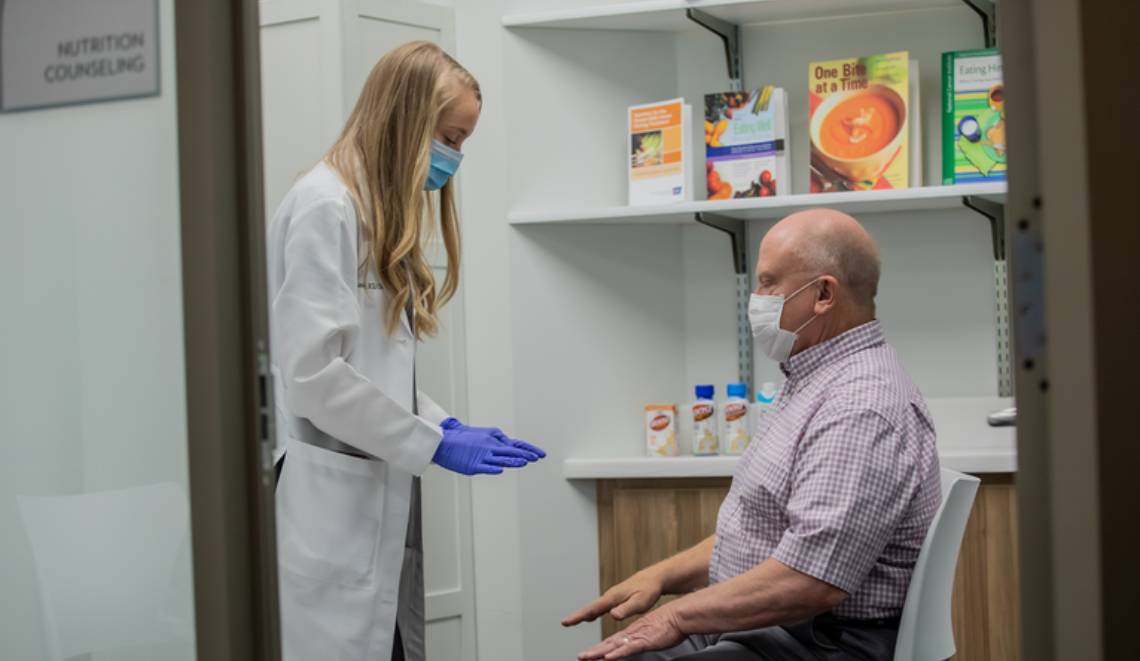

Colorectal cancer is the third most common cancer in the U.S. and the second leading cause of cancer-related deaths. While genetic factors play a role, research has made it increasingly clear that your lifestyle choices can influence your risk of developing this disease. By eating right and making healthy habits a priority, one can improve their odds of staying fit while adopting healthy dietary choices and lifestyle changes. With a focus on prevention, colorectal cancer treatment Houston encourages healthier lifestyle choices to complement medical interventions. Here's what you need to know about how diet and lifestyle can impact colorectal cancer.
Food choices are a key factor in colorectal cancer risk. Certain foods can elevate the likelihood of developing the disease, while others may have a preventive effect.
A diet low in fiber, found in fruits, vegetables, and whole grains, raises colorectal cancer risk. Fiber helps digestion and the removal of carcinogens, while fiber-rich foods provide essential nutrients that promote overall health.
High consumption of red meats (beef, pork, lamb) and processed meats (bacon, sausages) is linked to increased colorectal cancer risk. Chemicals formed during processing and high-heat cooking can be carcinogenic. The American Institute for Cancer Research (AICR) recommends limiting red meat to 18 ounces per week and avoiding processed meats.
Heavy alcohol use increases the risk of colorectal cancer. While moderate drinking is considered safe, excessive intake can damage the colon, leading to inflammation and potentially fostering cancer development.
Insufficient calcium and vitamin D are associated with a higher risk of colorectal cancer. Calcium protects the colon, and vitamin D regulates cell growth. The NIH suggests 1,000-1,300 mg of calcium and 600-800 IU of vitamin D daily, based on age.
Lifestyle Factors
In addition to diet, certain lifestyle factors can also increase your risk of colorectal cancer:
A lack of regular exercise is an important risk factor. While staying active promotes healthy weight, improves digestion, and reduces inflammation, inactivity does the opposite. The CDC recommends at least 150 minutes of moderate or 75 minutes of vigorous exercise weekly, combined with muscle-strengthening activities to reduce this risk.
Obesity, especially excess abdominal fat, raises the risk of colorectal cancer, particularly in men. Excess body fat leads to higher insulin levels and inflammation, both of which contribute to cancer development. Hence, maintaining a healthy weight through balanced eating and regular exercise helps in lowering this risk.
While smoking is commonly associated with lung cancer, it also increases the risk of colorectal cancer by promoting the growth of polyps, which may become cancerous. However, quitting smoking at any stage reduces this risk considerably.
In addition to physical inactivity, a sedentary lifestyle; characterized by prolonged sitting also increases colorectal cancer risk. Even for those who exercise regularly, sitting for long periods can slow digestion and increase inflammation. It’s important to stay active throughout the day to minimize this risk.
Screening plays a key role in preventing colorectal cancer. The U.S. Preventive Services Task Force recommends regular screening for adults between 45 and 75 because colonoscopy can identify and remove precancerous polyps, lowering the risk of cancer development. Those with a family history of colorectal cancer should consider earlier and more frequent screenings.
Although some risk factors for colorectal cancer, like genetics, are beyond our control, diet and lifestyle choices play an important role in reducing risk. Adopting healthier habits can meaningfully lower the chance of developing colorectal cancer and improve overall health. Regular screenings, combined with a balanced diet, physical activity, and other lifestyle adjustments, provide a well-rounded approach to prevention. In the U.S., where colorectal cancer remains a serious health issue, understanding these risks and taking preventive steps are essential for long-term health.